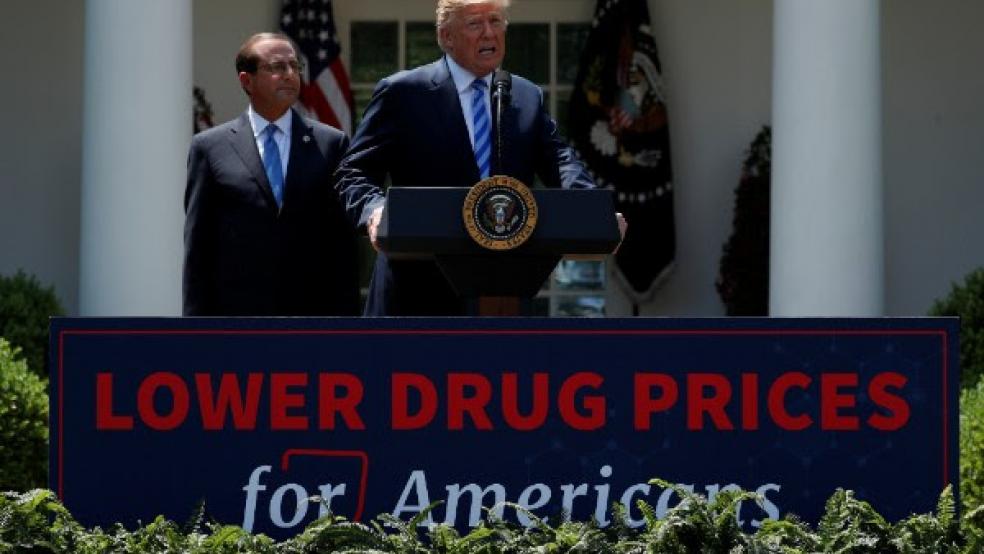The Trump administration has abandoned a key part of its plan to lower prescription drug prices, withdrawing its proposal to eliminate the rebates drugmakers give to pharmacy middlemen.
The administration’s rule would have required those rebates to be passed onto patients, theoretically lowering retail costs for consumers overall. In unveiling the proposal in January, Health and Human Services Secretary Alex Azar called it “an incredibly important proposal that could fundamentally change how drugs are priced and paid for at pharmacies.”
But administration officials were sharply divided over the plan, even as experts questioned how it effective it would be at lowering prices. Fiscal hawks including chief domestic policy adviser Joe Grogan and acting chief of staff Mick Mulvaney opposed it, along with much of the health insurance industry and pharmacy benefit managers.
An analysis by the Congressional Budget Office found that the proposal would raise Medicare Part D premiums for seniors and cost the federal government $177 billion in higher premium subsidies between 2020 and 2029.
Opposition to the plan within the administration reportedly had a political component as well, with senior White House advisers expressing concerns about increasing Medicare premiums ahead of the 2020 election.
“At the end of the day, while we support the concept of getting rid of rebates … we’re not going to put seniors at risk of their premiums going up,” Azar told reporters Thursday.
The middlemen win a round: “This is very bad news for the pharmaceutical industry, which blames middlemen for high drug prices and vocally supported the proposed rebate overhaul,” said Axios’s Caitlin Owens. “It's very good news for insurers and [pharmacy benefit managers].”
Investors were pleased: The reaction on Wall Street made it clear that investors had been worried about a threat to industry profits. Shares of pharmacy benefit managers, health insurers and drug distributors rose sharply Thursday, with Cigna up as much as 13%. Drugmakers, which had hoped the proposed rule would limit the power of middlemen, were down, with Merck and Pfizer falling more than 3%.
Trump’s blueprint take some serious blows: The rebate rule is the second key element of the Trump administration’s plan to lower drug prices to collapse this week, after a federal judge on Monday ruled that the Department of Health and Human Services does not have the authority to force pharmaceutical companies to disclose the list prices of their drugs in advertisements. The ruling blocked a policy designed to increase transparency and thereby lower prices that was to take effect this week.
What’s next: With two key legs of its drug-pricing agenda now gone, the administration reportedly indicated it may be open to a proposal, favored by progressives, to limit drug price increases to the rate of inflation.




